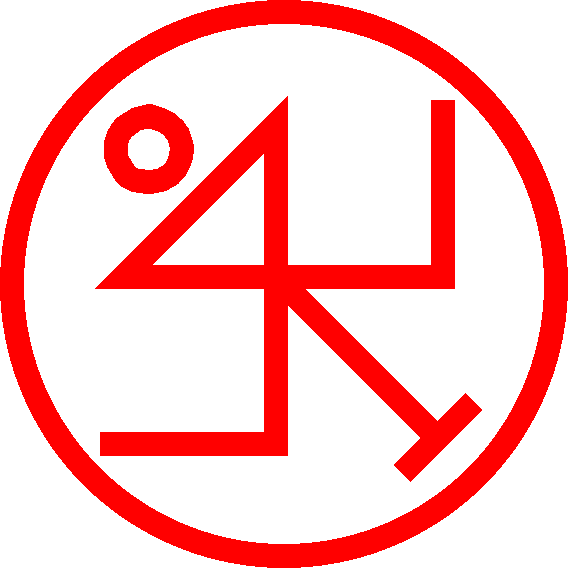[« Nouns] [Contents] [Adjectives »]
Notes
Nouns can be written consecutively, as a phrase, for three purposes: apposition (where both refer to the same thing), conjunction (an “and” or “or” relationship), or as a direct genitive phrase (where one noun is “of” the other, like a possession or a property, like “Statue of Liberty”).
Additionally, a genitive phrase can be made by using an indirect genitive, with a special adjective linking the nouns.
Apposition
This is when two adjacent nouns refer to the same thing in different ways: “your friend Bob” or “Helen the chairperson.” Egyptian allows such phrases as well: 𓅭𓏤𓎡𓅃𓀭 zꜣ.k ḥrw “your son Horus”, 𓊹𓍛𓇋𓏠𓈖𓊵𓏏𓊪 ḥm-nṯr jmn-ḥtp “the priest Amenhotep”.
Conjunctions
Two adjacent words could also be a pair that in English would be joined with the conjunctions “and” or “or”: 𓅭𓏤𓅭𓏏𓁐 zꜣ zꜣt could mean “son and daughter” or “son or daughter”.
While Egyptian did not have a true word for “and” or “or”, there were ways to be less ambiguous. For “and”, one could use either of two prepositions: 𓎛𓈖𓂝 ḥnꜥ “with, together with” or 𓁷𓏤 ḥr “upon”, in a phrase like 𓏏𓏐𓏒𓎛𓈖𓂝𓎛𓈎𓏏𓏋 t ḥnꜥ ḥnqt “bread with beer” or 𓏏𓏐𓏒𓁷𓏤𓎛𓈎𓏏𓏋 t ḥr ḥnqt “bread upon beer”. The use of “upon” is probably the same idea as “on top of” in an English sentence like “And on top of all that, he still …”
To get the meaning of “or”, there is a phrase 𓂋𓏤𓊪𓅱 r-pw which functions as a “whichever” at the end of a list of words: 𓇋𓏠𓈖𓀭𓊪𓏏𓎛𓀭𓇳𓏤𓀭𓂋𓏤𓊪𓅱 jmn ptḥ rꜥ r-pw “Amun, Ptah, or Re” (literally “Amun, Ptah, Re, whichever”).
Direct Genitives
Finally, a noun phrase could express possession or connection, where the first noun is “owned by” or “of” the second:
𓊹𓏤𓆎𓅓𓏏𓊖 nṯr km.t “god of Egypt”
𓅭𓏤𓅐𓏏𓏭𓁐 zꜣ mjw.tj “son of the two mothers”
There is a special rule about direct genitives: nothing is permitted to come between the two nouns (but there are exceptions). If the first (“possessed”) noun has any adjectives (“the man’s good daughter”, i.e. “the good daughter of the man”), there are two options:
- Move the adjective to the end of the noun phrase: zꜣ.t nfr.t zj (“daughter good man”) is not permitted, so it must be phrased as 𓅭𓏏𓁐𓊃𓀀𓏤𓄤𓆑𓂋𓏏 zꜣ.t zj nfr.t “daughter-of-man good”.
- But if the two nouns would use the same form of the adjective, this can be ambiguous. If it were “son” instead of “daughter”, it would be 𓅭𓏤𓊃𓀀𓏤𓄤𓆑𓂋 zꜣ zj nfr, and could mean “a son of a good man” or “a man’s good son”.
- Use the indirect genitive as described below: 𓅭𓏏𓁐𓄤𓆑𓂋𓏏𓈖𓏏𓊃𓀀𓏤 zꜣ.t nfr.t n.t zj “daughter good of man”, 𓅭𓏤𓄤𓆑𓂋𓈖𓊃𓀀𓏤 zꜣ nfr n zj “son good of man”.
Disambiguation
So if there’s no helpful ḥnꜥ, ḥr, or r-pw, the relationship between two nouns must be determined by context and what simply makes the most sense. For example: t ḥnq.t (literally “bread beer”) most likely means “bread and beer” or “bread or beer”; it probably doesn’t mean “bread (which is) beer” like apposition; it probably doesn’t mean “bread of beer” like a direct genitive.
Indirect Genitives
A less ambiguous way to express the “of” relationship is by using a special genitival adjective to link the two nouns. This works like an adjective on the first noun, relating it to the second noun, and in Middle Egyptian, its form often corresponds with the noun it modified (the first noun in the pair): 𓈖 n for masculine singular, 𓏌𓏤 nw for masculine plural and dual, and 𓈖𓏏 nt for feminine, regardless of number. That said, even by Middle Egyptian, it is being written more and more frequently as just 𓈖 n in all cases.
When an indirect genitive is used, all the other adjectives of the first noun come along with the genitival adjective:
𓊹𓏤𓎟𓄤𓆑𓂋𓃂𓈗𓈖𓊖𓏏𓏤 nṯr nb nfr wꜥb n njwt “every good and clean god of the city”.
Indirect genitives: forms of the genetival adjective
| Gender and number | Genitival adjective | Example |
|---|---|---|
| Masculine singular | 𓈖 n | 𓅭𓏤𓈖𓇓𓏏𓈖 zꜣ n nswt “the son of the king” |
| Masculine dual or plural | 𓏌𓏤 nw | 𓌢𓈖𓏲𓏭𓀀𓀀𓏌𓏤𓉠𓏏𓆇 snwj nw nbt-ḥwt “the two brothers of Nephthys” |
| Feminine (any number) | 𓈖𓏏 nt | 𓅭𓏏𓁐𓈖𓏏𓇳𓏤𓀭 zꜣt nt rꜥ “the daughter of Ra” |
[« Nouns] [Contents] [Adjectives »]
